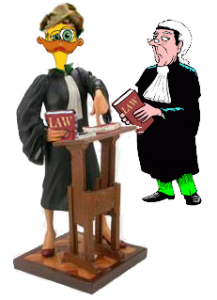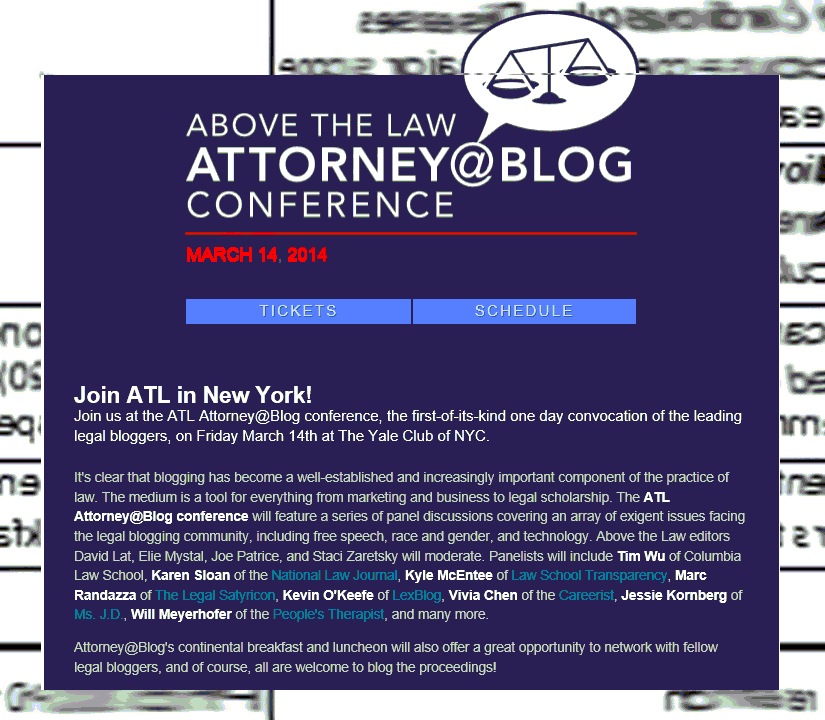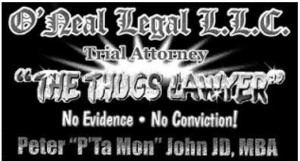Bloggers have First Amendment protections
 Why can’t lawyers respect the intent of the law? For example, bloggers get intimidating letters and email from lawyers threatening law suits over what seems to be normal exercise of free speech … an exercise amplified by the internet but still not much different than the kind of thing the Adams administration tried to suppress with the Alien and Sedition Acts. Adams lost that fight and the battle led to the creation of our two party system under Tom Jefferson.
Why can’t lawyers respect the intent of the law? For example, bloggers get intimidating letters and email from lawyers threatening law suits over what seems to be normal exercise of free speech … an exercise amplified by the internet but still not much different than the kind of thing the Adams administration tried to suppress with the Alien and Sedition Acts. Adams lost that fight and the battle led to the creation of our two party system under Tom Jefferson.

The fight has continued. I have gotten threatening emails about my own posts here about … the sort of threats that I feel typify thug lawyers, lawyers who use the threat of their bar membership and court costs to intimidate the rest of us. This sort of attorney has no interest in the intent of the law. Now, a blogger has stood up for the original intent and apparently, won the case at least in Oregon at the Federal District court level.
Part of what I like about the decision is that the case goes beyond the grand platform of protection of political speech. When Madison sent Tom Jefferson a draft of the Constitution, it was Jefferson who said he would oppose it unless the bill of rights was enacted at the same time. Jefferson understood perfectly that without the blogs of his day, the circular letters, the revolution likely would have died under the smothering blanket of the more controlled public media. In his mind, the right to speak your mind was more than needed to preserve freedom, it was inherent in the natural rights of all people. Jefferson, however, was also arguing for the same media that attacked him as a miscegenist and coward.
The case heard by the U.S. Circuit Court of Appeals was brought by an Oregon bankruptcy trustee against a blogger who wrote online that the court-appointed trustee criminally mishandled a bankruptcy case. UCLA law professor Eugene Volokh, who had written an article on the issue, learned of the case and offered to represent the blogger in an appeal. After the victory, Volokh said that the decision “makes clear that bloggers have the same First Amendment rights as professional journalists,,, There had been similar precedents before concerning advocacy groups, other writers and book authors. This follows a fairly well established chain of precedents. I believe it is the first federal appeals court level ruling that applies to bloggers.”
Gregg Leslie of the Reporters Committee for the Freedom of the Press said “It’s not a special right to the news media…..So it’s a good thing for bloggers and citizen journalists and others.”
Faculty at the UW should be aware that our rights are NOT limited to the Code. If bloggers have these rights, so do professors!
This decision, on behalf of a woman now living in Port Townsend, may strengthen the meaning of the recent UW Faculty Senate legislation. That legislation states that the UW administration may not limit the freedom of speech of faculty. My understanding, as a non attorney, is that the court has ruled that “freedom of the press” is not limited to politicians or businesses calling themselves newspapers. Presumably this would protect academic free speech as well.
It might be instructive to read more about the folks involved in creating this freedom … or as I suspect President Jefferson might say, recognizing free speech as an innate right. The founders endured a vicious form of free speech … newspapers of the day were augmented by pamphlets and handbills that served exactly the same role as blogs today. While universities of the time were still emerging from their roots in the training of clergy, both Hamilton and Jefferson traced their intellectual roots to the free inquiry they learned to pursue at Columbia and William and Mary.
Is it to possible to imagine that these men, representing two sides of our origins, would not have supported academic free speech?